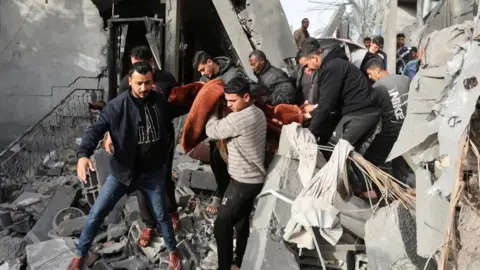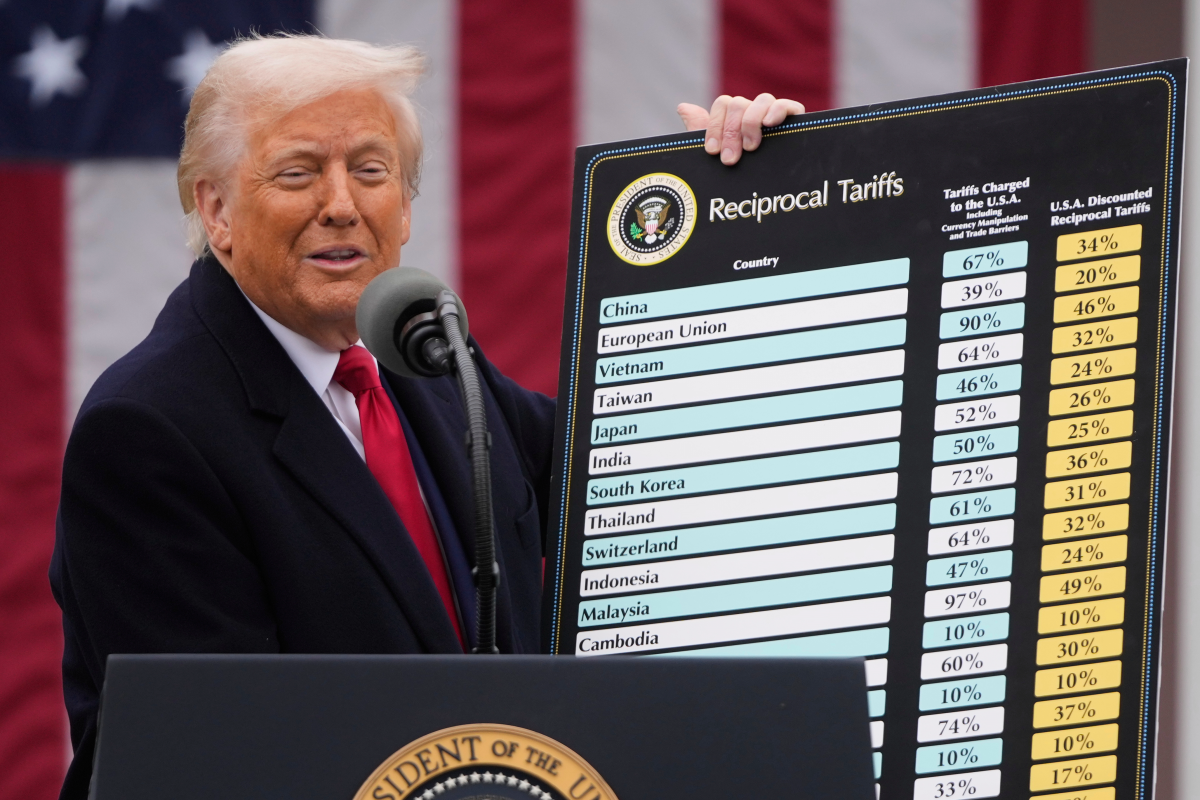Israeli Strikes Retaliate Hamas Rocket Barrage; Journalist Among Casualties
April 7,2025
Tensions escalated dramatically between Israel and Hamas on Sunday,April 6,2025,as a barrage of rockets fired from Gaza prompted immediate retaliatory air strikes by Israel.The exchange occurred as Israeli Prime Minister benjamin Netanyahu headed to Washington for crucial talks with U.S. President Donald Trump, casting a shadow over the planned discussions. The conflict resulted in at least one journalist’s death and several injuries, further complicating the already strained humanitarian situation in the Gaza Strip.
 Reuters
ReutersThe Israel Defense Forces (IDF) reported that approximately half of the ten rockets launched from Gaza made impact within Israel, while the remaining projectiles were intercepted. According to Israeli medics, falling debris resulted in at least one injury. In response, Prime Minister netanyahu, before departing for Washington D.C., ordered a “strong response,” signaling a swift escalation in the conflict.
Tragically, a Palestinian journalist, Helmi al-Faqaawi of Palestine Today TV, was killed, and nine others were wounded when an air strike hit a tent used by local media in Khan Younis, southern Gaza, according to the hamas Government Media Office and the Palestinian Journalists syndicate. Reuters news agency said footage showed people trying to put out a blaze in the tent which it said was inside the compound of Nasser hospital.
The IDF has yet to comment on this specific incident.
Nasser Hospital, the largest functioning medical facility in Gaza, has been struck multiple times as the war’s commencement in October 2023. The Israeli government has repeatedly accused Hamas of utilizing hospitals as strategic covers for military operations and weapons storage, allegations Hamas vehemently denies. This accusation mirrors past controversies, such as the debate surrounding the Al-Shifa Hospital in Gaza City, where similar claims were made, raising questions under international law regarding the protection of medical facilities during armed conflicts.
Prior to the air strikes, the IDF stated it targeted the rocket launcher used in the attacks on Israel, following evacuation orders issued to residents in several districts of Deir al-Balah in central Gaza. IDF Arabic spokesman Lt Col Avichay Adraee issued a stern warning: Israel would “launch a severe strike on any area from which rockets are fired”.
Hamas, in turn, claimed responsibility for the rocket attacks, citing them as a response to Israeli “massacres of civilians in Gaza,” according to Reuters.
Regional and International Diplomatic Efforts
Amidst the escalating violence, international efforts to mediate a ceasefire are underway. french President Emmanuel Macron met with Egyptian President Abdul Fattah al-Sisi and Jordan’s King Abdullah II in Cairo on Monday to discuss strategies for de-escalation and a path toward renewed negotiations. these discussions highlight the crucial role of regional actors in seeking a resolution to the ongoing conflict, reminiscent of past U.S.-led efforts during previous crises in the region.
Netanyahu’s agenda during his talks with President Trump at the White House included the Gaza war and the ongoing efforts to secure the release of the 59 hostages still held by Hamas since their capture during the initial October 7, 2023, attack. The hostage situation remains a sensitive issue, with families of the captives in the U.S. and Israel increasing pressure on their governments to prioritize their release.
The current military campaign was reignited last month after a ceasefire, which began in January, broke down. Each side has blamed the other for the collapse, with Israel accusing Hamas of rejecting a U.S. proposal to extend the truce, and Hamas accusing Israel of abandoning the original agreement.
Context of the conflict
The ongoing conflict stems from the unprecedented Hamas attack on Israel on October 7, 2023, resulting in approximately 1,200 fatalities and the abduction of 251 individuals taken as hostages to Gaza.What followed has been a relentless Israeli offensive, which, according to the Hamas-run health ministry, has resulted in over 50,750 Palestinian deaths. These figures are disputed, and verification remains challenging amidst the chaos of war.
The war’s impact extends far beyond immediate casualties, affecting critical infrastructure and essential services. As of April 2025, the united Nations estimates that over 1.7 million Gazans have been displaced,seeking refuge in overcrowded shelters and makeshift camps. Access to clean water, food, and medical supplies remains severely restricted, leading to a dire humanitarian crisis. This situation echoes previous conflicts in the region, highlighting the long-term consequences of protracted violence on civilian populations.
For U.S. readers, the conflict carries significant implications.Beyond the geopolitical ramifications, there’s a palpable impact on American public opinion, sparking debates over U.S. foreign policy, aid to Israel, and the role of the United States in mediating the Israeli-Palestinian conflict. The ongoing situation frequently enough triggers demonstrations across U.S. cities, reflecting the diverse perspectives and strong emotions surrounding this complex issue.
Hamas’s Diminished Rocket Capabilities
Following the initial months of the war, the frequency and intensity of Hamas’s rocket attacks considerably decreased as Israel strategically targeted their arsenals and launching sites. Despite this reduction, the group continues to sporadically launch rockets into Israel, demonstrating their remaining operational capabilities. Footage from the Israeli city of Ashkelon showed flashes in the sky as sirens wailed and an explosion at the bottom of a block of flats during the rocket attack on Sunday night.

 Reuters
Reuters
What are the key factors that will most likely influence the trajectory of this conflict in the coming weeks and months?
Archyde Interviews Dr. Anya Sharma on Escalating Israeli-Palestinian Conflict
interview Introduction
Welcome to Archyde. Today, we have Dr. Anya sharma, a geopolitical analyst specializing in middle Eastern affairs, to discuss the recent escalation in the Israeli-Palestinian conflict following the hamas rocket barrage and Israeli retaliatory strikes. Dr.Sharma,thank you for joining us.
Dr. sharma: Thank you for having me. It’s a crucial moment, and I appreciate the chance to discuss it.
The Immediate aftermath and Humanitarian Crisis
Archyde: The article highlights the death of a journalist and the ongoing humanitarian crisis. Can you elaborate on the immediate impact of these recent events on civilians in Gaza, Dr. sharma?
Dr. Sharma: Certainly. The situation is dire. The strikes, as reported, have resulted in further casualties and injuries, exacerbating an already critical situation. With medical facilities facing strains, and essential resources are scarce, the impact on the civilian population is immeasurable. The destruction of infrastructure also hampers aid delivery, compounding the challenges.
Diplomatic Efforts and International Involvement
Archyde: We’re seeing diplomatic efforts from various international bodies. How effective do you anticipate these interventions will be, especially given the history of previous failed attempts?
Dr. Sharma: Regional and international involvement is vital,but the context is challenging. While discussions between French President Macron and other leaders on de-escalation are welcome, any breakthroughs must acknowledge the complex political realities. The central issue of the release of hostages and the ongoing military operations makes it difficult to find common ground. Furthermore, it is too early to gauge the ultimate effectiveness of any such initiatives.
Analysis of Hamas’s Capabilities
Archyde: The article mentions Hamas’s diminished rocket capabilities following the initial months of the war. What are the strategic implications of their continued, albeit sporadic, rocket launches into Israel?
Dr. Sharma: While Hamas’s overall capacity is diminished, its ability to launch rockets serves several strategic purposes. It maintains a presence and demonstrates that it can still conduct operations, creating psychological pressure and keeping the conflict present. Such attacks may also be used as a bargaining chip in any future negotiations. However, this ongoing situation also prompts the need for more extensive and persistent military operations.
Possible Outcomes and Future Outlook
Archyde: Looking ahead, what potential scenarios do you see unfolding in the coming weeks and months? What factors will most likely influence the trajectory of this conflict?
Dr. Sharma: The situation is certainly fluid. The key factors include the outcome of Netanyahu’s talks with president Trump, the level of international pressure on both sides, and the success or failure of any ceasefire initiatives. If a truce is not reached, we could see further escalation with additional civilian casualties. A critical juncture will be the release of hostages. The U.S. will continue to play a prominent role. The key parameters include the international response and the political stability of the parties involved.
A Call to Readers: Encouraging Interaction
Archyde: Dr. Sharma, in your professional and expert opinion, what single factor do you think will most significantly determine the future of this conflict, and why?
Dr. Sharma: The willingness of both sides to engage in genuine dialog and make significant concessions will undoubtedly have the most profound effect.without a mutual commitment to finding a durable solution,tensions will persist. A genuine commitment to the peace process will be essential.
Archyde: Thank you, Dr. Sharma, for your insightful analysis. We encourage our readers to share their thoughts and opinions on this concerning situation in the comments below.







